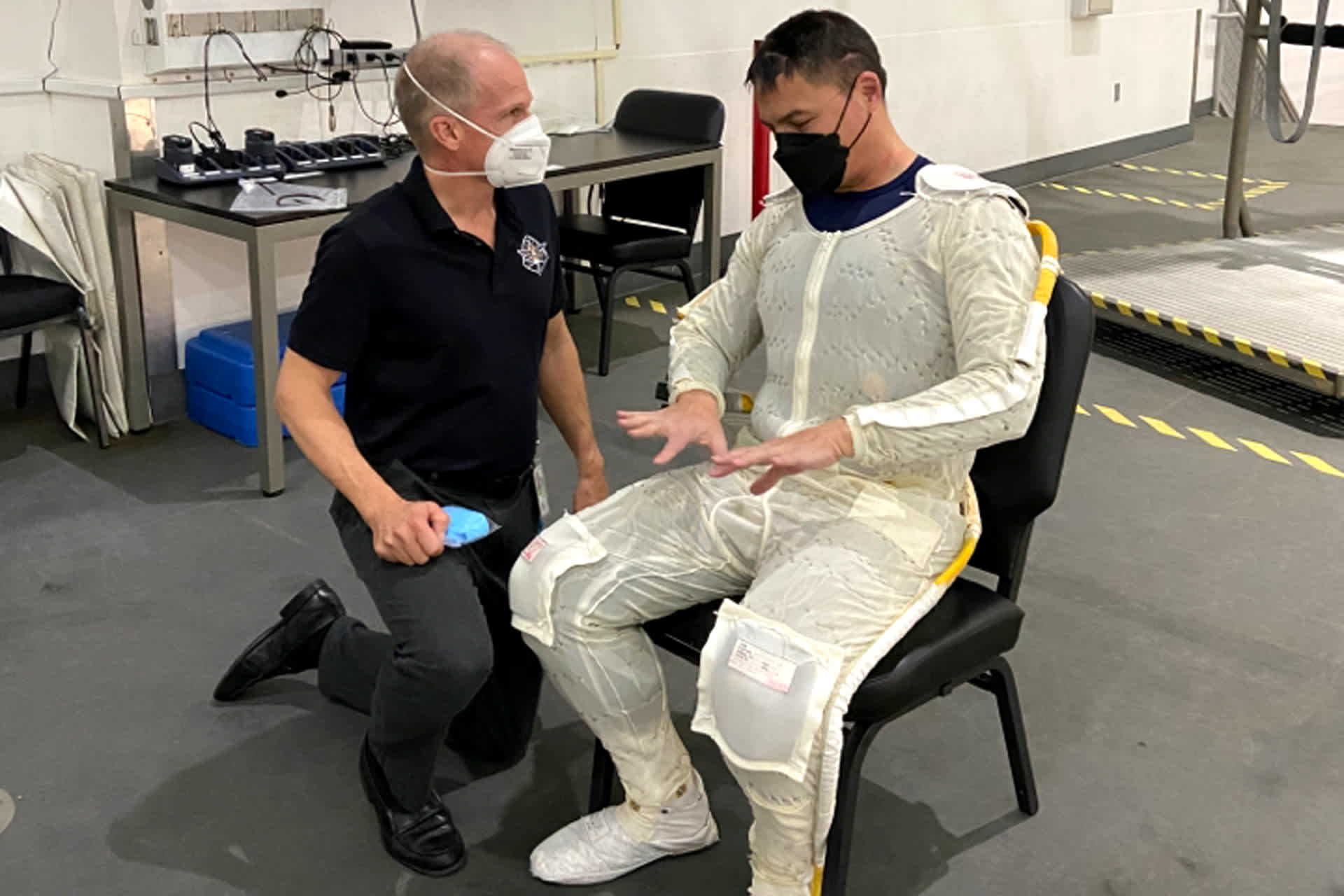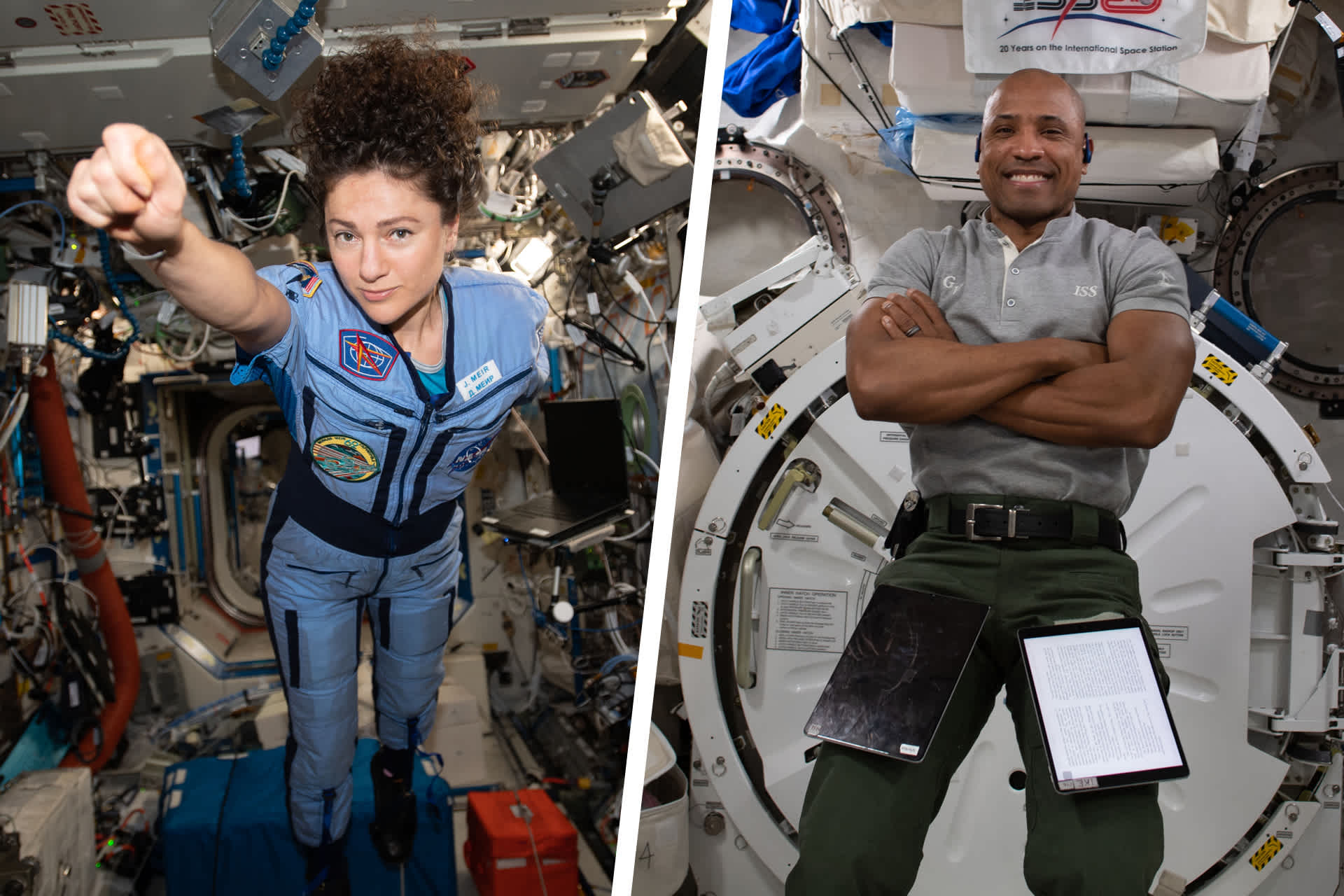I'm a Flight Surgeon

I’m Dr. David Picken, and I have one of the coolest jobs on and off Earth. I’m a flight surgeon, or an astronaut doctor, at NASA Johnson Space Center, in Houston, Texas.
Growing up, I wanted to be a doctor. I also wanted to be a pilot. At a career fair in college, I saw a poster for the United States Navy. On that poster was a picture of a person climbing into an airplane. The poster said that this person’s job was to be a flight surgeon. (A flight surgeon isn’t a doctor who operates on patients in an airplane. Surgeon is a title for a doctor in the military, so a doctor who takes care of pilots = flight surgeon.) I thought, “Cool! I can be a doctor and I get to fly!”
After graduating medical school, I did six months of extra training to learn about all the ways that flying can affect the human body. Different forces act on the body in the air than on the ground—kind of like the sensations you feel on a roller coaster—and these forces can affect your sense of up and down. There are changes in air pressure, which can do more than just cause your ears to pop: They can affect the concentration of oxygen you are breathing. This, in turn, can affect how well your mind works. There are also illusions that can affect your vision, toxic substances that you can breathe, and mental health stresses. Some medicines affect you differently in the air from how they do on the ground. All of these things can alter a pilot’s ability to safely fly his or her aircraft. Plus, pilots can get sick, just like anyone else.
This is where the flight surgeon comes in. An understanding of the way flight affects the human body helps us better take care of a pilot. And we take care of them when they get sick or injured. A flight surgeon’s job is to keep a pilot doing his or her job: flying.
In the military, a flight surgeon also gets to fly. It’s expected, and part of the job. You get a firsthand understanding of all those effects on the body, and that makes you better able to take care of your patients. And it’s fun to fly! I learned how to fly different kinds of helicopters and airplanes, including a fighter jet. I also flew a lot as a crew member with my pilots, including on and off aircraft carriers.

That brings us to my current job, as a flight surgeon at NASA, where I take care of astronauts. In space, there are additional effects on the body, such as zero gravity. This initially affects your balance system, so it’s common for astronauts to feel a little seasick in their first couple of days. But there are also effects on the heart, bones, and muscles. And outside Earth’s protective atmosphere, space radiation can cause problems.
Spacewalks come with other medical concerns. While astronauts are in space, we watch and talk to them from Mission Control to help take care of their health. After they return to Earth, they need a doctor to look after them and guide their reconditioning. We also work with the engineers who design spacecraft. We’re part of a big team that gets astronauts to space and home safely. Some flight surgeons have even become astronauts.
It’s a pretty cool job to help get someone ready to fly to space, take care of them while they’re out there, and see them when they come home.

